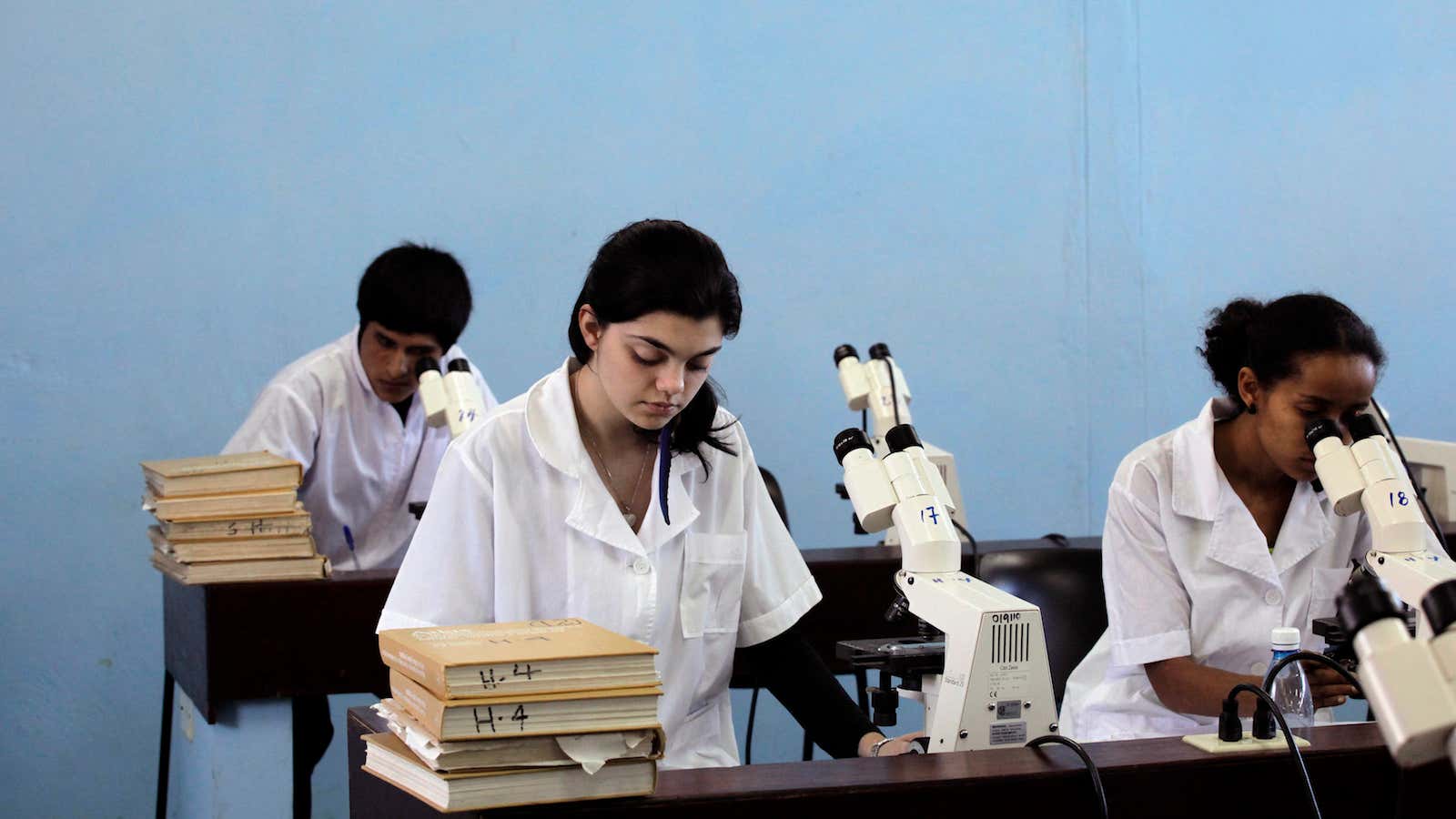When I was applying to med school some 20 years ago in the UK, I was advised not to say at the interview: “I want to be a doctor because I want to help people.”
The answer was considered too dull back then. And in any case, I was asked “Why medicine?” only once.
“I’m not sure, but it’s not because my parents forced me.” I hesitatingly answered.
The interview panel giggled at my honesty, and for breaking a stereotype about Indians. I was accepted. But I doubt that this answer would cut it today.
Showing a sense of altruism is practically mandatory today for would-be doctors. But when I was 17 (the age when we typically applied to study medicine) that wasn’t the case. My curriculum vitae had little evidence that I wanted to help people.
There was no summer volunteering in eye camps in India. No travels to Africa to be indignant about poverty. The closest thing I had done that had any semblance of medicine was a brief stint as a hospital porter to supplement my pocket money: I carried blood vials from the emergency department to the laboratory. And although I waxed lyrical about the experience in my personal statement, I can’t say it was terribly inspiring to stare at cylinders of blood.
I do not recall caring for an ill acquaintance before I became a doctor. I didn’t go out of my way to help blind men cross the road. I didn’t routinely help old women pack their groceries—I still don’t. The most altruistic thing I had ever done was rescue a budgie when I was seven. I did not put that down in my personal statement.
My father, a physician, had little influence. I hardly saw him because of his work, and when I did he hardly spoke about work. I do remember, though, as a child, that he had a full skeleton of human bones in his study. My friends and I would concoct stories that it belonged to a former serial killer.
I watched no medical dramas. There were no medical personalities I admired. I never visited a hospital to shadow a doctor. And although I did fall ill with suspected appendicitis, it was hardly a life-changing experience.
Some contend that middle class kids do medicine because of the job security and pay. To be honest, at 17, I thought I was immortal and couldn’t have cared less about security. As for money, well I was pretty left-wing.
The reality is that there is no inspiring story I can recount about why I became a physician. If it was a calling, then I didn’t hear it. I don’t think I was the only one in my medical school with the same experience. Over the years I have seen my classmates enjoy and endure medicine. Many are now excellent physicians with impeccable work ethics and compassion. If, back when they were students, they knew that volunteering in Chad during the summer break earned five points, they would have done it just for the five points. But what would it have proven?
Understanding what truly motivates someone to choose medicine, and whether that choice is motivated by noble inclinations or not is a pointless exercise. As soon as “I want to help people” becomes objectified as just another in criterion med school admissions, as it has been, it will be gamed.
I’ve seen an entire generation of medical students become excellent doctors, even though, for them, “wanting to help people” was incidental to simply wanting to be doctors. The best I can garner about why I became a doctor is that it seemed like a good idea at the time. I’m glad I did, though—I ended up helping people anyway.
